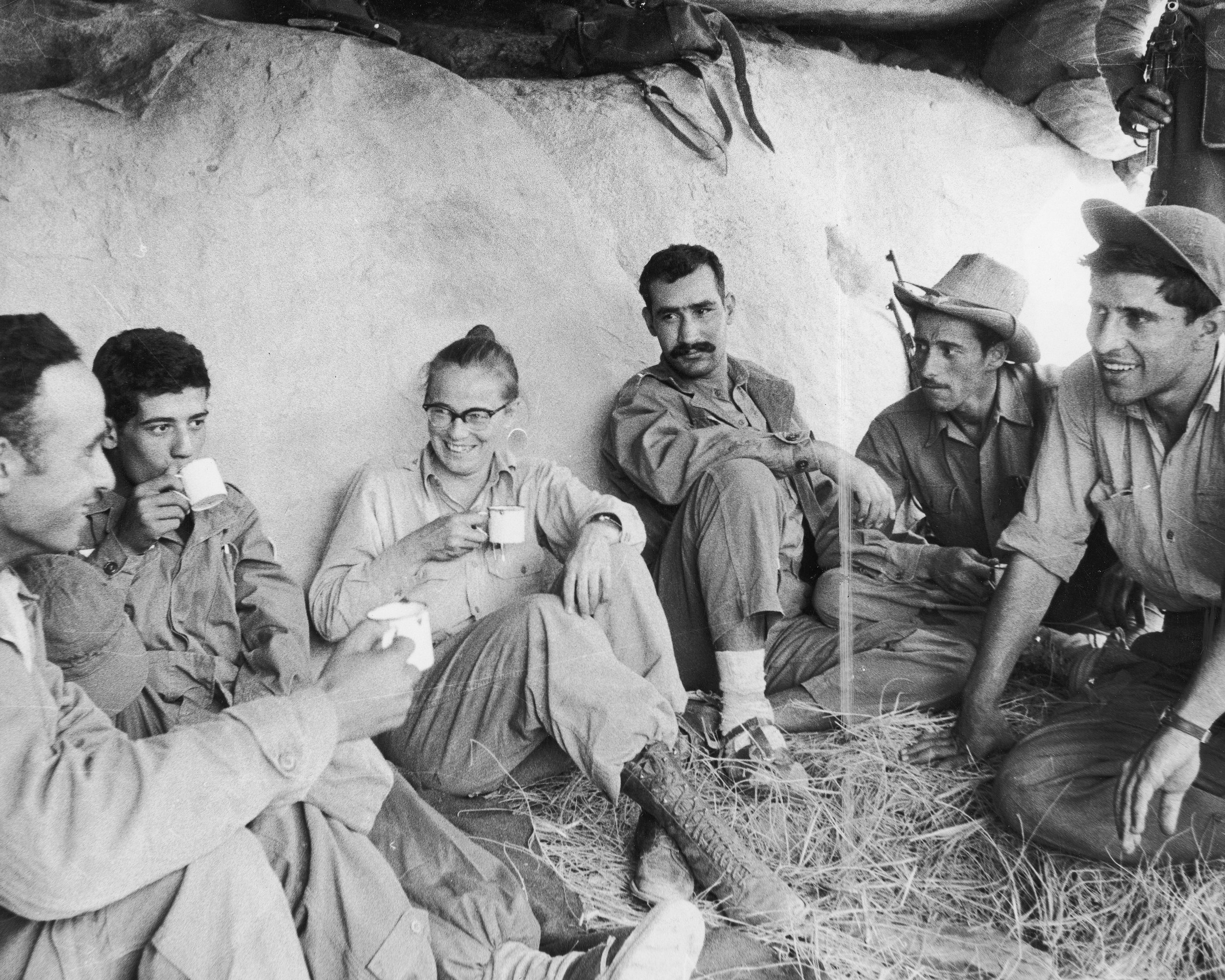Born on a Montana ranch in 1880, Jeannette Rankin knew how to ride a horse, make a fire, and read the sky for weather. But most of all, she knew how to talk to people, how to convince them of her vision for America. It was this rare skill that led her, in 1916, to become the first woman ever elected to the House of Representatives.
As her first act, Rankin introduced the legislation that would become the 19th Amendment. Throughout her two terms in 1916 and 1940, she continued to introduce and pass legislation benefitting unions, protecting workers, and increasing aid for children in poverty. In 1941, she stood tall as the sole anti-war voice in Congress during WWII, advocating for pacifism in the face of tragedy and stating that you can no more win a war than you can win an earthquake.
A suffragist, feminist, peace activist, workers' rights advocate, progressive, and Republican, Rankin remained ever true to her beliefs—no matter the price she had to pay personally. Yet, despite the momentous steps she made for women in politics, overcoming the boys club of capitalists and career politicians who never wanted to see a woman in Congress, Jeannette Rankin’s story has been largely forgotten. In Winning the Earthquake, Lorissa Rinehart deftly uncovers the compelling history behind this singular American hero, bringing her story back to life.
Available Now
Praise for Winning The Earthquake
"This superb biography of the first woman elected to Congress deserves a place on every public and academic library bookshelf."
—Library Journal (starred review)
"An illuminating biography... It’s a gripping window into progressive political history and one woman’s defiance of sexist gatekeepers."
— Publishers Weekly
"Drawing on Rankin’s many interviews, Rinehart imbues her narrative with her subject’s passion and voice. A well-researched biography of a memorable woman."
— Kirkus Reviews
"A comprehensive and clear-eyed biography of this important American figure. In a time when a dismaying number of public figures across the spectrum pursue personal and political enrichment, Rankin’s courage of her convictions is inspiring."
— Booklist
"Gripping from start to finish, Lorissa Rinehart’s page-turning biography brings Rankin to life in all her righteous glory. Rinehart’s timing could not be better. Her suspenseful and engaging biography of this courageous trailblazer is a stark reminder of a time when some politicians were brave enough to stand up for what they believed in and suffer the consequences. For readers hungry for political role models, Winning the Earthquake is not just inspirational, but therapeutic history."
— Clara Bingham, author of The Movement: How Women’s Liberation Transformed America 1963-1973
"Astonishing... Rinehart delves into the life of this uncompromising suffragist, pacifist, and social reformer, providing an in-depth look at a woman who never stopped fighting for what she believed in, providing a legacy to inspire countless Americans today."
— Lisa Rogak, author of Propaganda Girls
"Winning the Earthquake is a powerful reminder that Jeannette Rankin paved the way for so many of us. I hope this book moves you as it did me. It reminds us all to keep standing up, speaking out, and never give up the fight for our rights."
— Olivia Troye, Former National Security Official; Strategy, Policy & Operations Executive; and Media Commentator
"A vivid, compelling portrait of a remarkable woman who reminds us that social and political change is grounded in community... Every generation needs its Jeannette Rankin. And generations to come need books like Winning the Earthquake that tell their story."
— Cynthia Richie Terrell, RepresentWomen Executive Director and Founder
"Many of us know the name Jeannette Rankin, but it was a deep pleasure for me to learn about her humanity, her wisdom, and her remarkable courage. Congresswoman Rankin opened the door to leadership for the other half of our Americans."
— Don Beyer, Member of Congress
From 1945 to 1965, Dickey Chapelle covered almost every major conflict from WWII to Vietnam.
She was the only woman on the front lines of Okinawa.
She survived six weeks of solitary confinement in a communist Hungarian prison.
She marched beside the FLN in Algeria and found her way to Castro’s camp in the Sierra Maestra mountains.
She paratrooped with the 82nd, 101st, and Vietnamese Airborne, embedded herself with Special Forces in Laos and lived for a month with an anti-communist guerrilla army in the Mekong Delta.
While on patrol with some of the first combat Marines deployed to Vietnam in 1965, she was killed by an improvised explosive.
Dickey’s writing and photographs chronicle the arc of the Cold War like no other journalist. And yet, her work is almost unknown.
Until now.
“An extraordinary story….Reads like a Hollywood movie.”
— The Wall Street Journal
“Compelling and detailed… a thrilling adventure story.”
—Milwaukee Journal Sentinel
“Unforgettable….A valuable, long-overdue tribute to an American woman whose work and commitment to human rights is more relevant than ever.”
— BookPage (starred review)
“Jam-packed with colorful details and incisive character sketches, this is a vivid reappraisal of a pioneering journalist.”
—Publishers Weekly (starred review)





